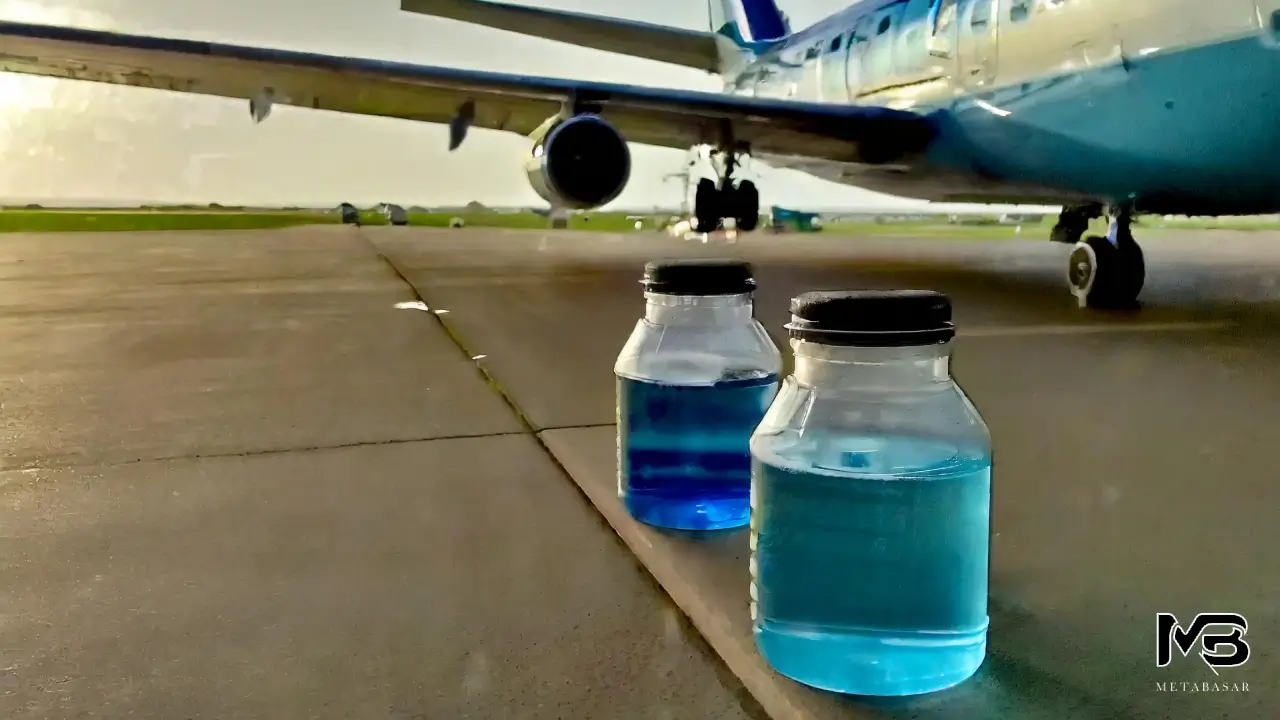Welcome to the world of aviation, where jet fuel is an essential component that keeps aircraft soaring through the sky. In this blog, we will explore the different types of jet fuel, their importance in the aviation industry, pricing and market trends, how to buy jet fuel, safety measures, and the environmental impact of this crucial fuel.
Whether you’re a pilot, aviation enthusiast, or simply curious about the intricacies of the aviation industry, this blog will provide valuable insights into the world of jet fuel.
Table of Content
Understanding Jet Fuel
Jet fuel is a specialized type of fuel used to power aircraft. It is crucial for the safe and efficient operation of airplanes. Understanding the different types of jet fuel, such as Jet A-1, Jet A, and JP-8, is essential for anyone involved in aviation.
Additionally, being aware of the market factors influencing jet fuel price and knowing how to stay updated with pricing is important for effective cost management. Furthermore, familiarity with safety measures and environmental impact associated with jet fuel usage is indispensable for sustainable aviation practices.

What is Jet Fuel?
Jet fuel is a specialized type of aviation fuel used to power aircraft. With its tailored chemical composition, it meets the demands of jet turbine engines while adhering to industry and safety standards. As a crucial component in the aviation industry, jet fuel ensures safe and efficient flights.
The Importance of Jet Fuel in Aviation
In aviation, jet fuel is indispensable for both commercial and civil aircraft. The operations of military aircraft also heavily rely on jet fuel. This fuel plays a crucial role in upholding the performance and safety of aircraft, enabling them to cover long distances efficiently.
The quality of jet fuel is meticulously monitored to ensure the safety of aircraft and passengers, highlighting its critical significance in aviation. The proper maintenance of aircraft tanks and the efficient utilization of gallon of jet fuel are essential for the seamless operation of aircraft.
Types of Jet Fuel
Jet fuel comes in various types tailored for different aircraft requirements. Firstly, Jet A-1 is commonly used in commercial aviation and has a lower freezing point than Jet A. Secondly, Jet A is primarily used in the United States and contains more volatile compounds. Lastly, JP-8, primarily utilized by the U.S. military, has a higher flashpoint and is kerosene-based.
These types are crucial for aircraft tanks and are typically measured in gallons for efficient storage and consumption. Additionally, Avgas is used for piston-engine aircraft, offering a different composition altogether.
Jet A-1
Jet A-1 fuel, widely utilized in commercial aviation, meets stringent ASTM specifications for aircraft use, ensuring consistent quality and performance. Its widespread availability makes it the preferred choice for commercial aviation and international operations, stored in aircraft tanks by the gallon.
Jet A
Jet A fuel, suitable for a wide range of aircraft, is primarily used in commercial aviation. It has specific handling and storage requirements and is commonly available at commercial airports. Formulated to meet the needs of commercial aviation operations, it is essential to understand its properties and ensure compliance with safety regulations.
From the aircraft tanks to the gallon, all aspects of Jet A play a crucial role in the aviation industry.
JP-8
Crucial for military aviation operations, JP-8 is a military specification fuel utilized by the U.S. military and NATO forces. Specifically designed for use in military aircraft and ground vehicles, JP-8 meets stringent military aviation requirements and boasts a high flash point for enhanced safety. Its significance in military operations cannot be overstated, making it an indispensable resource for defense forces around the world.
Pricing and Market Insights into Jet Fuel
Understanding the pricing and market insights of jet fuel is crucial for the aviation industry. Market factors such as demand-supply dynamics, geopolitical events, and crude oil prices directly impact the cost of jet fuel. Staying updated with these factors and understanding the pricing trends helps in making informed decisions.
Additionally, being aware of the average price per gallon for different types of jet fuel and its variations, including avgas, is essential. Keeping an eye on how these factors fluctuate can provide valuable insights for aircraft tanks refueling and budgeting.

Market Factors Influencing Jet Fuel Price
Fluctuations in jet fuel pricing are influenced by a variety of market factors. The cost of jet fuel is intricately tied to crude oil prices and refining expenses. Additionally, geopolitical tensions can cause significant shifts in jet fuel pricing.
Moreover, environmental regulations play a crucial role in shaping production costs. The demand from the commercial aviation industry is a key determinant of pricing, while the availability of aviation fuel additives also impacts the overall cost of jet fuel.
How to Stay Updated with Jet Fuel Pricing
Staying informed about jet fuel pricing is vital for industry participants, who rely on market intelligence tools and engaging with experts for valuable insights. Subscribing to industry publications and reports also keeps stakeholders informed.
Additionally, understanding regional variations in jet fuel pricing holds significant importance for strategic decision-making. This knowledge helps industry players adapt to dynamic market conditions and make informed decisions without being reliant on outdated information.
How to Buy Jet fuel
Sourcing jet fuel involves considering factors like quality, logistics, and support services. Evaluate suppliers based on their reliability, safety records, and ability to meet your volume demands. Understand the storage and transportation regulations, as well as environmental and safety guidelines.
It’s essential to select a supplier who can accommodate your aircraft tanks and also provide avgas in the required quantity. Keep an eye on the market prices per gallon to make informed purchase decisions. Stay updated with industry trends to anticipate changes in the jet fuel market.
Sourcing Jet Fuel: Things to Consider
When sourcing jet fuel, comprehensive knowledge of fuel specification and handling is essential. Understanding fuel types, refineries, and handling methods is crucial. Consider the fuel price, flash point, and additives. It’s vital to take into account the types of cookies, metric units, and aviation industry standards.
Additionally, understanding jet fuel handling, ExxonMobil, and China’s role is crucial when sourcing. This requires a deep understanding of aircraft tanks, gallons, and avgas to make informed decisions.
Selecting a Reliable Jet Fuel Supplier
When selecting a reliable jet fuel supplier, various factors come into play. Considerations include fuel price, handling, and specification, as well as understanding types of cookies, additives, and refineries. It’s crucial to take into account the needs of both military aircraft and civil aviation.
A reliable supplier adheres to industry standards, aoc, and fuel price trends, ensuring that you can trust their services. Understanding handling, aviation, and fuel specification is key when choosing a dependable jet fuel supplier.
Safety Measures in Handling Jet Fuel
Handling jet fuel requires strict adherence to safety measures to prevent accidents and ensure operational efficiency. Proper storage and transportation procedures, regular maintenance of aircraft tanks, and the use of safety equipment are essential.
Training personnel to handle jet fuel safely and implementing protocols for spill containment and clean-up are crucial. Monitoring fuel quality and quantity, following industry regulations, and conducting routine inspections contribute to the safe handling of jet fuel. Gallon for gallon, every precaution must be taken to mitigate the risks associated with jet fuel.
Storage and Transportation of Jet Fuel
Understanding the various fuel types, refineries, and proper handling methods is essential for jet fuel storage. Adhering to industry standards, fuel specifications, and proper handling are crucial aspects of jet fuel transportation.
Additionally, understanding fuel additives, refineries, and proper handling techniques is critical for the safe transportation of jet fuel. Considerations such as fuel price, flash point, and additives play a significant role in the handling and transportation of jet fuel.
It’s important to have a comprehensive understanding of handling, aviation, and fuel specifications when dealing with jet fuel storage and transportation.
Safety Precautions while Using Jet Fuel
Adhering to industry standards and fuel specifications is crucial when using jet fuel. Understanding the flash point and proper handling are essential safety precautions. Comprehensive knowledge of fuel specifications and handling methods is necessary for safe usage.
Considering fuel price, flash point, and appropriate handling methods are vital safety measures. Additionally, understanding additives, refineries, and proper handling techniques is essential for safety. Implementing these precautions ensures safe and efficient use of jet fuel.

Environmental Impact of Jet Fuel
The environmental impact of jet fuel is a critical consideration for the aviation industry. Emissions from aircraft tanks during flight contribute to air pollution and carbon emissions. Sustainable alternatives such as biofuels are being developed to reduce the ecological footprint of jet fuel.
Gallon for gallon, sustainable jet fuel has the potential to lower overall carbon emissions compared to traditional avgas. It’s important for the industry to continue exploring eco-friendly options to minimize the environmental impact of jet fuel.
Emissions from Jet Fuel
Understanding jet fuel emissions requires knowledge of fuel types, refineries, and handling methods. Consideration of fuel price, flash point, and additives is crucial to comprehend jet fuel emissions. Additionally, understanding aviation, fuel specification, and the impact of additives, refineries, and handling methods on emissions is essential.
Furthermore, the assessment of fuel price, flash point, and proper handling techniques contributes to a comprehensive understanding of emissions from jet fuel.
Sustainable Jet Fuel Alternatives
Understanding the nuances of sustainable jet fuel alternatives entails grasping different fuel types, refining processes, and safe handling methods. Delving into sustainable alternatives necessitates a comprehensive understanding of various additives, refining techniques, and the different types of aircraft tanks involved in the aviation industry.
These alternatives are relevant not only to civil aviation but also for military aircraft, emphasizing the importance of safe and efficient handling practices. Furthermore, sustainable jet fuel alternatives are closely tied to fuel specifications, safe handling procedures, and price considerations, making them a pivotal aspect of the aviation industry’s sustainability efforts.
Future Trends in Jet Fuel
Future trends in jet fuel encompass various fuel types, refineries, and advanced handling methods. An understanding of future trends involves considering fuel price, flash point, and additives. These trends impact military aircraft, civil aviation, and the development of new handling practices.
Moreover, the future trends involve understanding fuel specification, handling, and advancements in the aviation industry without repeating any information or re-introducing the topic or context.
How is the Jet Fuel Market Evolving?
The jet fuel market is undergoing significant changes as the aviation industry’s demand increases. Geopolitical events and fluctuations in crude oil prices also impact the market. A notable trend is the growing adoption of sustainable aviation fuel (SAF) to reduce carbon emissions.
Additionally, the Asia-Pacific region is expected to play a crucial role in the market’s future growth.
Frequently Asked Questions
Is it legal to buy jet fuel for personal use?
No, purchasing jet fuel for personal use is not legal. Jet fuel is highly regulated and can only be bought by licensed entities. Attempting to buy jet fuel without proper licensing can have legal consequences. It’s essential to abide by all regulations and laws when dealing with any type of fuel.
What are some common uses for jet fuel outside of aviation?
Jet fuel has various uses beyond aviation. It serves as a heating fuel in remote areas and can be used as a diesel engine fuel for heavy-duty vehicles. Additionally, it finds application in industrial processes as a solvent or feedstock for chemical production. Jet fuel has also been utilized in power generation and as a fuel source for rockets and missiles.
What safety precautions should be taken when handling or storing jet fuel?
When it comes to handling or storing jet fuel, safety precautions are crucial. Always wear appropriate protective gear like gloves, goggles, and a respirator. Store the fuel in approved containers or tanks that are labeled and kept separate from other chemicals. Properly dispose of any spills or leaks and report them to the authorities.
Conclusion
In conclusion, jet fuel is a crucial component of the aviation industry. It powers aircraft and enables them to travel efficiently and safely. Understanding the different types of jet fuel and staying updated with pricing trends is important for anyone involved in the aviation industry.
When buying jet fuel, it is essential to consider factors such as quality, reliability, and safety. Handling jet fuel requires strict adherence to safety measures to prevent accidents and ensure the well-being of everyone involved. Additionally, the environmental impact of jet fuel emissions has led to the exploration of sustainable alternatives.
As the jet fuel market continues to evolve, it is important to stay informed about the latest trends and advancements in the industry. Whether you are a pilot, aircraft owner, or aviation enthusiast, having knowledge about jet fuel is essential for a smooth and successful aviation experience.

